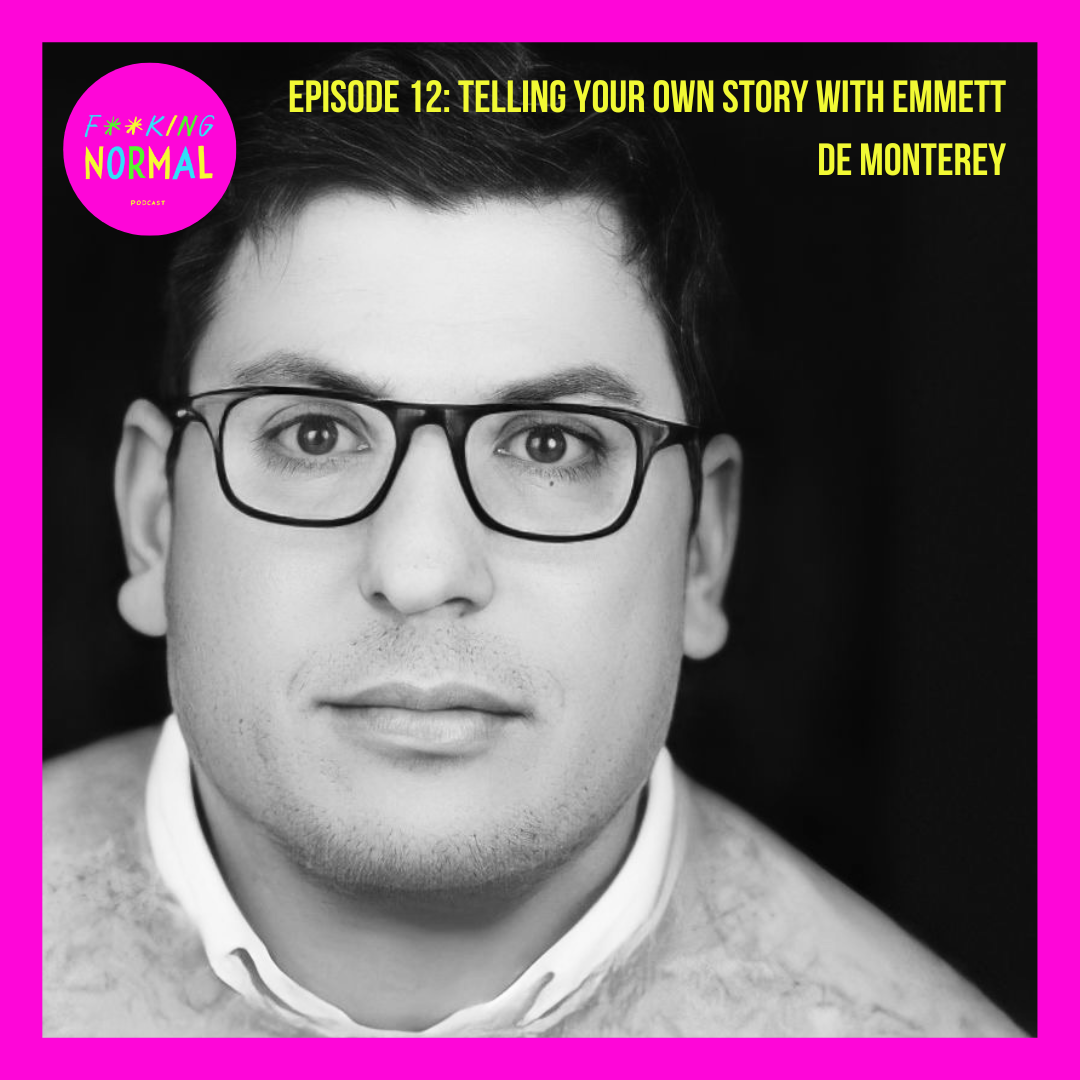EPISODE 12 - Telling your own story with emmett de monterey
This week Rina, Lauren and season one guest Gemma Sherlock, interview trained psychotherapist Emmett de Monterey on his extraordinary life and memoir ‘Go The Way Your Blood Beats.’
Diagnosed with Cerebral Palsy at 18 months old, Emmett was raised by loving, accepting and liberal parents and yet he grappled for a long time with accepting his own identity. His feelings towards his disability, coupled with the realisation that he was gay made his early adolescence a difficult time in his life. This was further compounded by becoming a media sensation and ‘charity poster child’ for a ground-breaking gait surgery in the US.
In this heart warming discussion we delve deep into Emmett’s story, into how society has treated him, his route to acceptance and the impact his parents played in helping him to embrace his own identity. Lauren, Rina and Gemma also explore the impact having a child with disabilities has had on them, and how their own views on disability have changed and critically, Emmett shares why owning his story and writing his memoir is so important to him.
Guest Biography
Emmett de Monterey grew up in South East London in the early 1980’s. When he was eighteen months old he was diagnosed with cerebral palsy which, up till then, was a condition his young, bohemian parents had never heard of. At aged 12, Emmett was selected to undergo a revolutionary gait surgery in America and was the subject of national media attention. The story in the papers was one of ‘cures’, but while the surgery was a success, it wasn’t the ‘miracle’ of the tabloid headlines. Around the same time, Emmett was also realising he was gay, but thought that to be both disabled and queer was impossible, and that his sexuality would always remain theoretical, a secret.
Emmett has recently written a memoir ‘Go the Way Your Blood Beats’, a powerful story about finding your place in the world, embracing your identity, and fighting to be seen in a society which would still prefer the disabled to be invisible.
Go the Way Your Blood Beats - Amazon
@PenguinUKBooks
@VikingBooks
Gemma Sherlock’s biography can be found in ‘Episode 2 - Siblings’
Content Warnings
Diagnosis
Eating Disorders
Surgery
Traumatic Birth
Death in Adolescence
Reference to the contaminated blood scandal with haemophiliacs (1970s-1990s UK)
Resources
Crip Camp Documentary on a ground breaking summer camp that galvanizes a group of teens with disabilities to help build a movement, forging a new path toward greater equality.
Watch Crip Camp: A Disability Revolution | Netflix Official Site
'Far From The Tree' by Andrew Solomon
Far from the Tree by Andrew Solomon – review | Health, mind and body books | The Guardian
Let’s End The Awkward - Scope Campaign
End the Awkward | Disability charity Scope UK
Changing Faces Campaign
Visible Hate Campaign | Ending Appearance Related Hate Crime (changingfaces.org.uk)
Emmett refers to 22% of the population experiencing disability (representing visible and invisible). See below for various relevant statistics for the UK. Scope cites 23% of working age adults are disabled, based on their families resources survey 2021-2022. Worldwide a figure of 15% is often quoted (Ref: who.int and humanity-inclusion.org.uk)
Disability facts and figures | Disability charity Scope UK
Disability, England and Wales - Office for National Statistics (ons.gov.uk)

